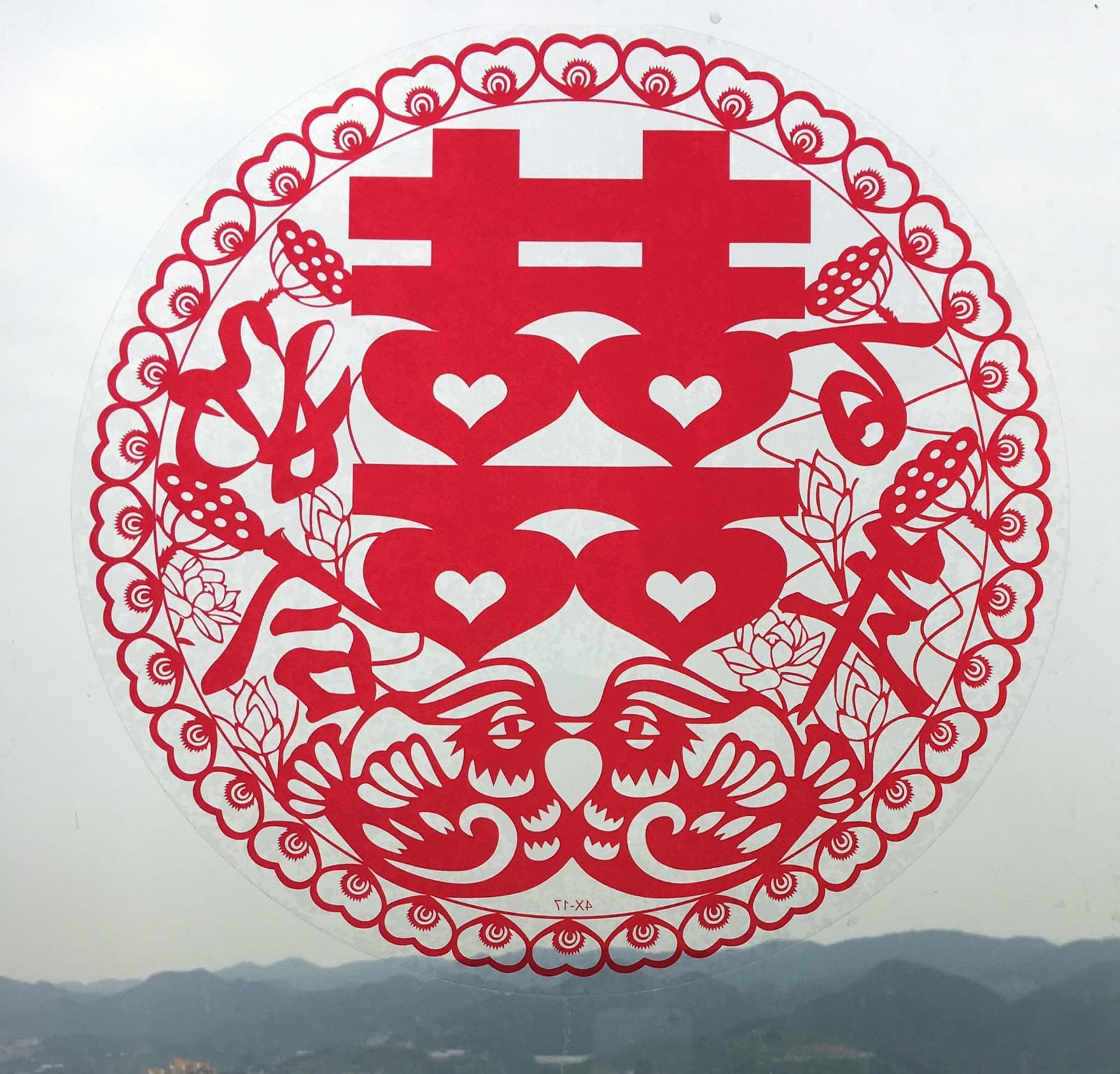High School Baseball In Japan
In Japan, baseball is important. High School baseball is even more important.
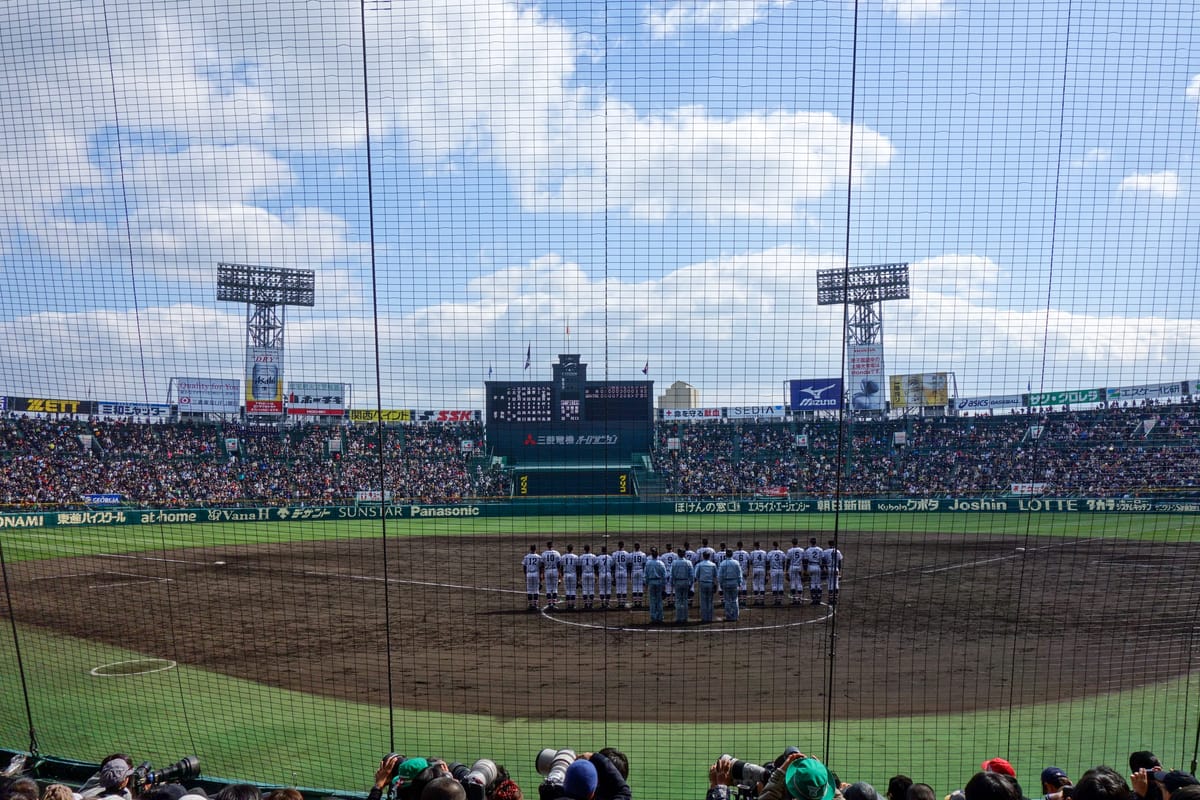
The 30,000-plus crowd of people are cheering as the batter steps into the batter's box. The pitcher throws. The batter swings on a strike. The pitcher throws again. It is a ball. The pitcher throws for the third time. This time, the batter connects, driving the ball between the shortstop and the second baseman. A runner scores, and it is 1-0 in the first inning for Akita Shogyo against Ryukoku. Never heard of the teams? It is probably because not many people follow Japanese high school baseball.
The National High School Baseball Tournament of Japan takes place annually at Koshien Stadium. This is the 97th tournament, but also the 100th anniversary of the first tournament. Each of the 49 prefectures (like states or provinces) sends one school team. The tournament takes place over 15 days in August. It is a single-elimination setup, meaning a team cannot lose more than one game.
The rules of baseball are the same as they are in the United States, Canada and the rest of the world. The Japanese approach is a bit different. There is a greater emphasis on bunting, base stealing, and base hits, rather than trying to hit home runs, to create runs. There is a set time for games, which last until the 15th inning. In most places, such as the US or Canada, the game continues until a winner is declared.
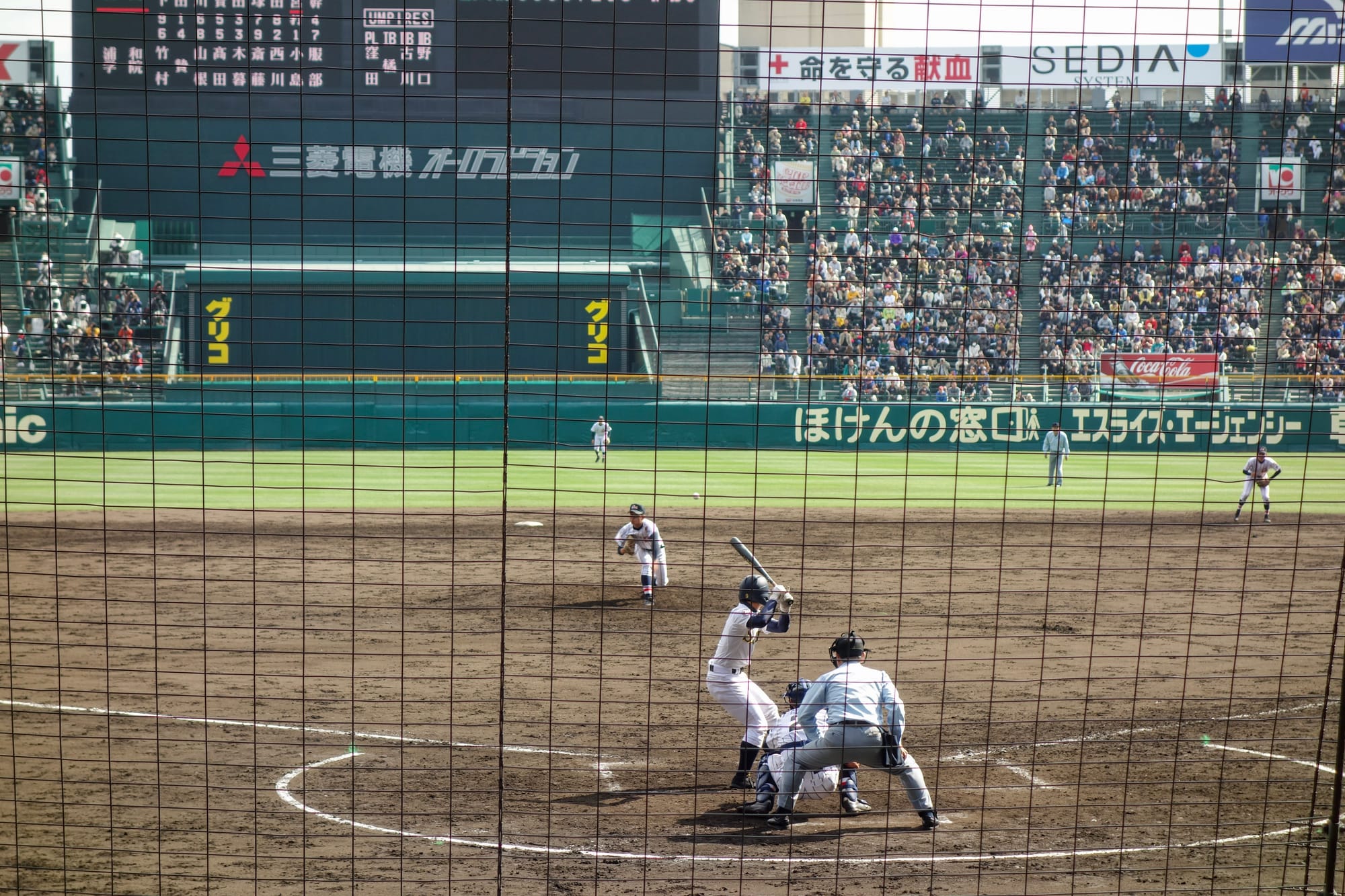
Koshien Stadium is one of the oldest baseball parks in the world, built in 1924. It was constructed to host these National High School Baseball Championships. Later, it became the home of the Hanshin Tigers, Japan’s oldest professional baseball team. The stadium holds 48,000. During the Championships, there is free admission for the majority of the games. The Japan Times Newspaper estimates that over 800,000 people will attend the games over the 15 days.
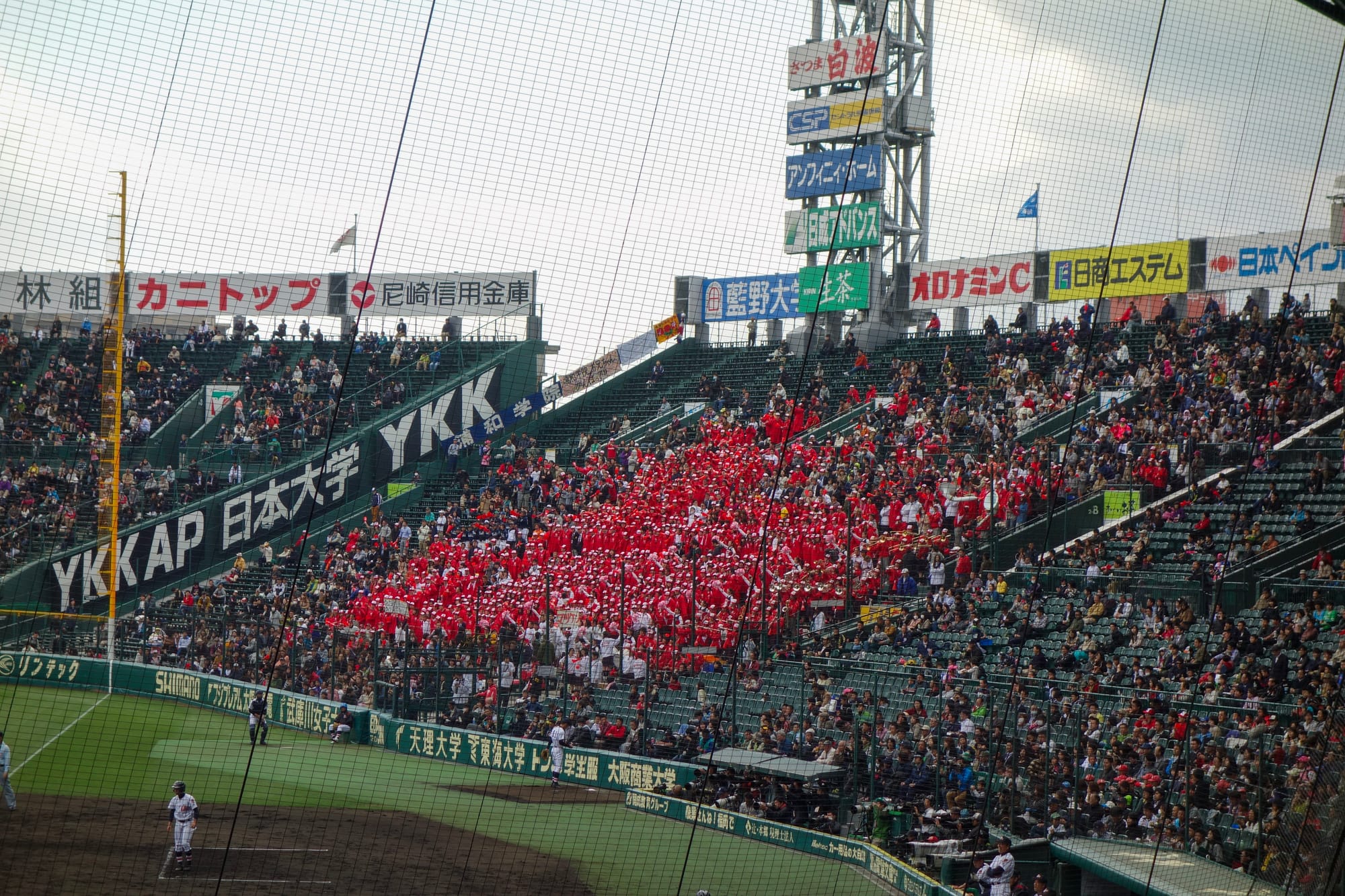
Inside the stadium, the two schools playing each other sing school songs to cheer on their teams. There are loud cheers when there is a hit from one side of the field, while silence from the other side. Beer, dried squid, sushi and other snacks are served. The game resembles an American college football game.
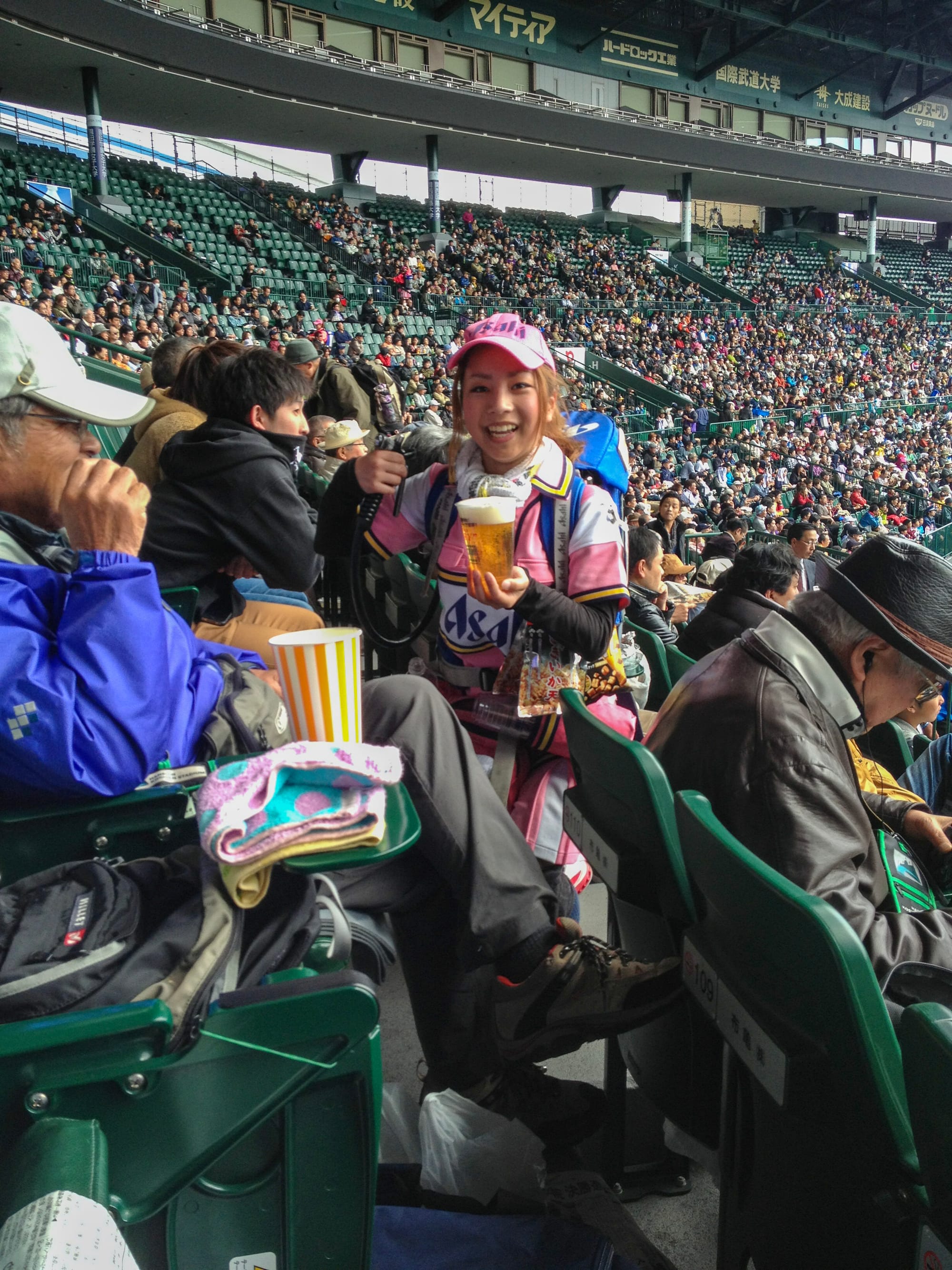
All games are broadcast live throughout the country on Japan Broadcasting’s (NHK) three channels. The tournament generates a lot of money for its main organizer, the Asahi Shinbun Newspaper. The publicity generates significant advertising for the participating schools. Some, like newspaper Jitsuwa Bunka Tabooa, have argued that this exposure does considerable harm. It puts enormous pressure on high school-aged kids. School leaders view participating in the tournament as a means to promote the school.
Pitcher Hiroki Kuroda of the New York Yankees told the New York Times how, during his years as a high school player, he was forbidden from drinking water during long practice sessions. He was forced to participate in punishing drills that continued until players dropped from exhaustion. Bullying from coaches and older teammates was also part of playing high school baseball. One of the punishments he remembered was being forced to drink water from a toilet.
The temperatures for the game are in the mid-to-high 30s. It is the fourth game today. There are no clouds in the sky. Sitting under the covering from the sun makes the game more comfortable to watch, but out on the field, it is hot. The pitchers for both Akita Shogyo and Ryukoku are throwing baseballs around 132 km/hr (82 mph) in the late 8th innings. In the top of the 9th inning, Akita gets three more runs off of singles to win the game.
The losing team bends down to collect the dirt from the field as a reminder of the experience. For a majority of them, it is their last high school game. The two teams line up, and the school song of the victor is played. They bow out of respect for the umpires and then to the opposing team to end the game. There are four more games tomorrow.
